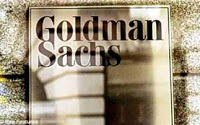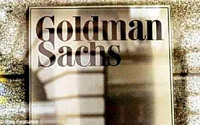 Goldman Sachs considers a radical change in the Greek political scene after the May 6 elections unlikely, estimating that the electoral law, the fragmentation of the opposition and the errors of probabilities in the polls will not allow the emergence of unstable political forces…
Goldman Sachs considers a radical change in the Greek political scene after the May 6 elections unlikely, estimating that the electoral law, the fragmentation of the opposition and the errors of probabilities in the polls will not allow the emergence of unstable political forces… The Greek political scene, according to the new report of Goldman Sachs for the day after the elections, has undergone a significant change.
The traditional division between the center-left (PASOK) and the center-right (New Democracy, or SW) is no longer the main dilemma for Greek voters.
The unconditional support that PASOK and ND have given to the coalition government of Loukas Papadimos has created new data in the dilemma: Are those who are willing to bear the political cost of austerity in order for Greece to remain in the euro and those who oppose European policy.
According to opinion polls, voters' dissatisfaction with the manipulations of the governments of the two major parties over the past decade has been severe, reducing their popularity.
While in the past PASOK and ND gathered percentages of about 70-80% together, now their power has been reduced to about 30-40%. The elections will be judged by the percentage of undecided voters, while a number of small and new parties are expected to enter the new Parliament.
This has raised market concerns, as the Greek elections could lead to an anti-European government, which could halt adjustment efforts and pose risks to economic stability.
Goldman, however, considers that this is unlikely to happen for the following reasons:
* Given the electoral law (with a bonus of 50 seats in the first party), even with the total electoral power of 30-40% by PASOK and ND together, the two parties can form a majority government in case they cooperate.
* Opposition parties are many, but fragmented and divided. There are strong ideological differences between the parties of the left - and much more between those of the far left and the far right. The programs and aspirations are very different. The chances of the opposition parties forming a stable and cohesive coalition are quite low.
* Polling companies continue to warn that the high percentage of undecided voters creates a wide margin of error around current polls. Given the high support for the Greek perspective in the eurozone, the current polls probably underestimate the factor of the Greeks voting for those who can ensure the European perspective.
Source: Newsbeast.gr
